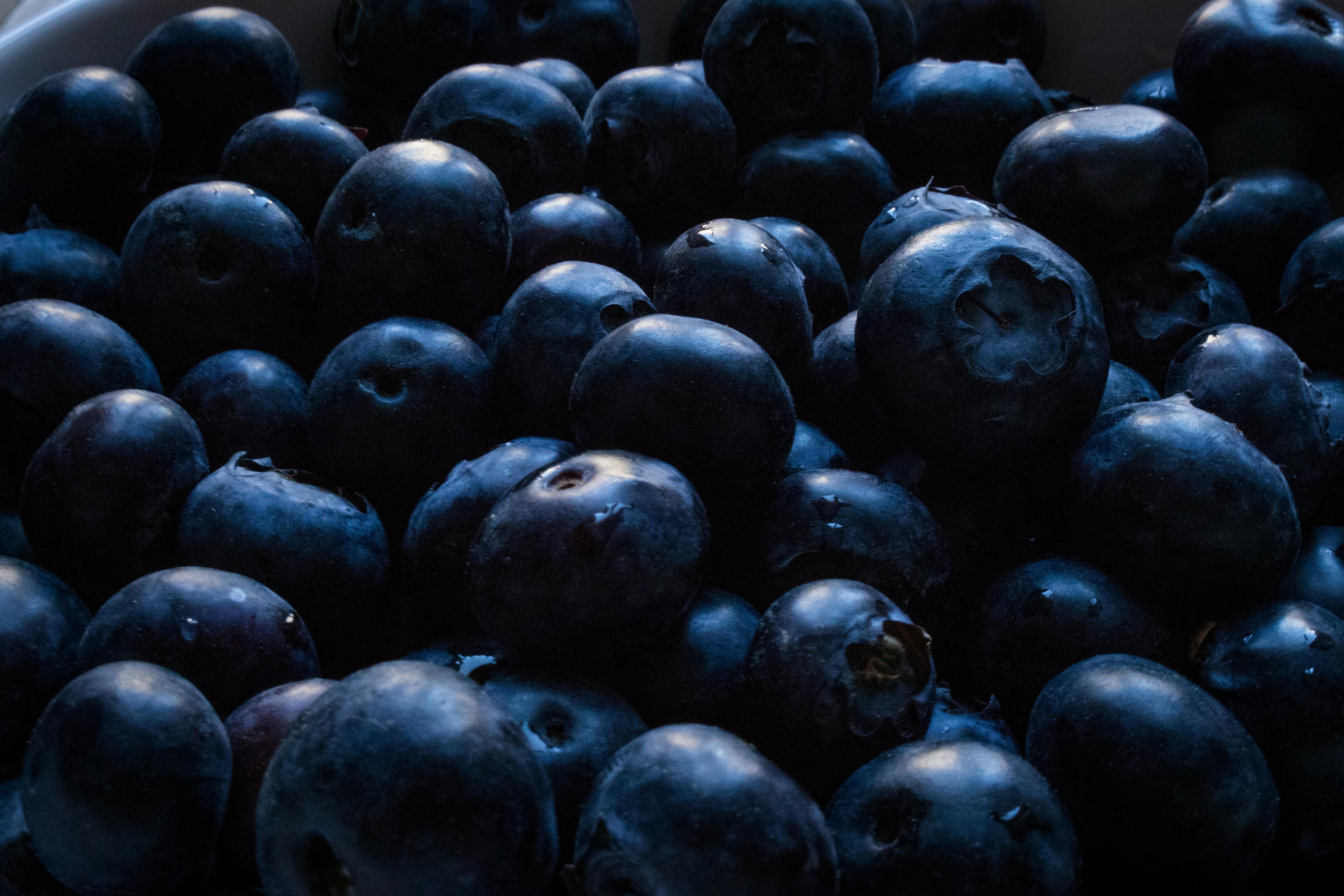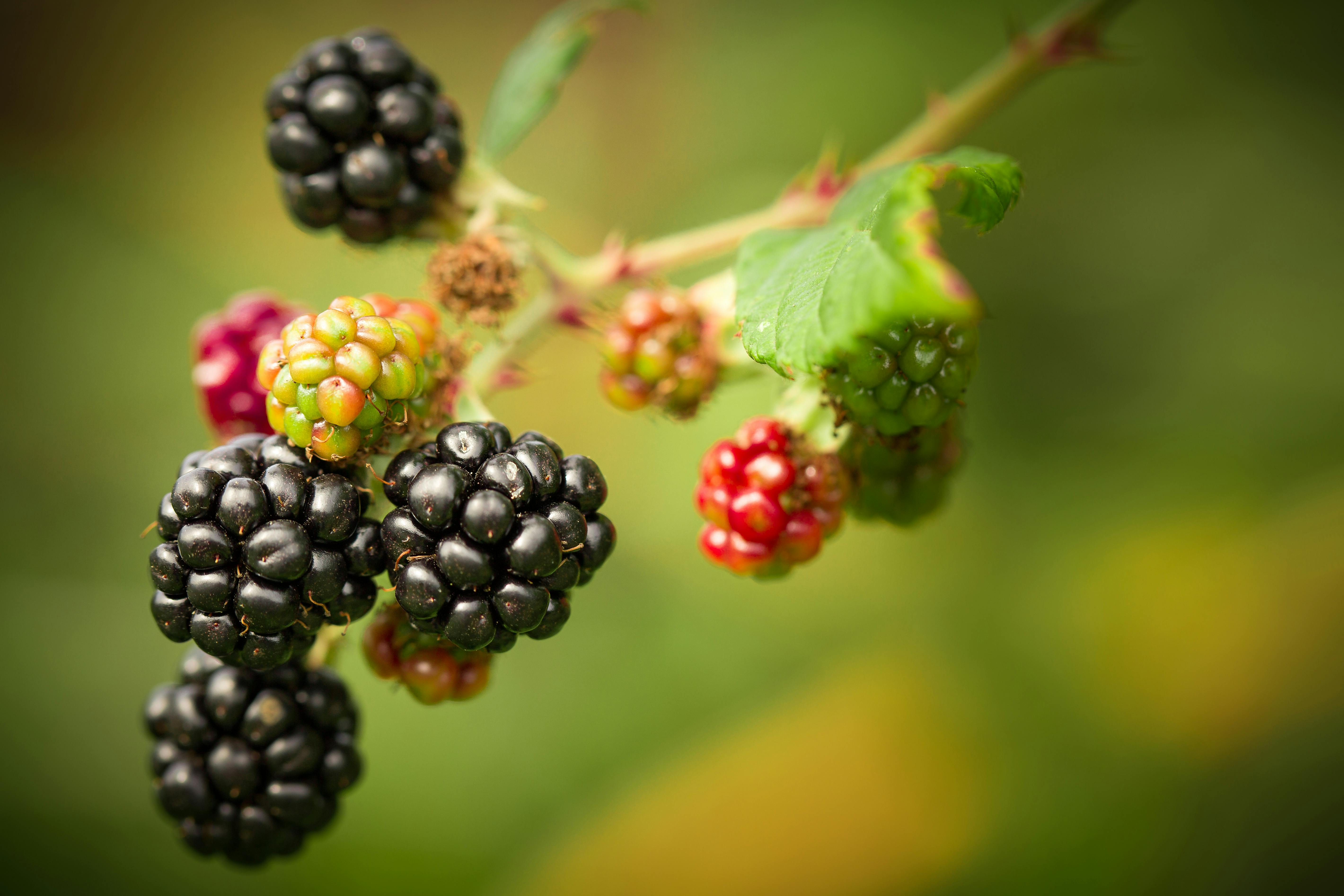Blueberries are a delicious and nutritious summertime treat. They are easy to grow and thrive in acidic soil with plenty of sun and water. Planting companion plants alongside blueberries can help to maximize their growth potential and provide additional benefits like pest control, weed suppression, and the addition of beneficial nutrients. Some of the best plants to grow with blueberries include mint, thyme, lavender, chives, oregano, rosemary, marigolds, garlic, onions, and other herbs. Additionally, adding nitrogen-fixing plants such as clover or legumes will help to boost nitrogen levels in the soil for better blueberry growth.Companion planting for blueberries involves planting certain plants near blueberry bushes to help improve growth and yield of the crop. Some good companion plants for blueberries are dill, oregano, thyme, basil, nasturtiums, marigolds, garlic, or chives. These plants act as natural pest-repellents and can also help enrich the soil with essential nutrients. Additionally, planting evergreen trees such as pine or spruce near your blueberry bushes can provide shading and shelter from winter winds.
The Benefits of Growing Blueberries
Blueberries are a delicious and nutritious fruit, and growing them in your own garden is becoming increasingly popular. Not only will you have a continuous supply of fresh berries to enjoy, but there are many other benefits to growing blueberries as well.
One of the greatest advantages of growing blueberries is that they require very little effort or maintenance. Blueberry bushes are hardy plants that can survive in most climates, meaning that it’s relatively easy to keep them healthy and producing fruit. They require minimal pruning and fertilization, so even novice gardeners can have success with them.
Growing blueberries can also be incredibly rewarding. Watching the bushes bloom in the springtime and harvesting the delicious ripe berries in the summer is an immensely satisfying experience. Plus, you’ll always know where your food comes from and can be sure that it’s organic and free from harmful chemicals or preservatives.
Finally, blueberry bushes offer a great way to attract wildlife to your garden. Birds love eating the ripe berries, while bees are attracted to the flowers for pollination. Having these creatures around will help create a more diverse ecosystem in your yard or garden space.
In summary, growing blueberries offers many benefits such as low maintenance requirements, rewarding harvesting experiences, organic produce, and increased wildlife activity. If you’re looking for an easy way to grow your own fruit at home, consider giving blueberry bushes a try!
Ideally Soil Conditions for Growing Blueberries
Blueberry plants require acidic soil with a pH balance of between 4.5 and 5.2 in order to thrive. They prefer light, well-drained soils that are high in organic matter, such as compost or peat moss. Sandy loam soils, which contain a mix of sand, silt, and clay particles, are ideal for growing blueberries. They need plenty of water during the growing season to produce abundant fruit and prevent drought stress; however, they do not tolerate wet or waterlogged conditions at any time. The soil should also be slightly acidic with a pH between 4.5 and 5.2 for optimal development of blueberry plants.
In addition to the soil’s pH level, blueberries need ample amounts of macronutrients such as nitrogen (N), phosphorus (P), and potassium (K). Nitrogen is essential for healthy growth of foliage and roots; phosphorus helps with early root development; while potassium promotes flowering and fruiting. Blueberry plants should also have access to adequate levels of micronutrients such as calcium (Ca), magnesium (Mg), boron (B), zinc (Zn), iron (Fe), copper (Cu) and molybdenum (Mo). As with most other crops, it is important to regularly test the soil in order to maintain proper nutrient levels for healthy blueberry production.
What Fruits Grow Best with Blueberries
Blueberries are a great addition to any garden and make a tasty addition to your diet. But if you want to get the most out of growing blueberries, you should also consider what other fruits grow best with them. Several fruits do well when planted alongside blueberries, so here are some of the best combos for a healthy and productive garden.
Raspberries are an excellent choice for growing alongside blueberries, as they both prefer acidic soils and similar climates. Planting the two together also helps increase yields as they can often share resources such as water and nutrients.
Strawberries are another great fruit to pair with blueberries as they have similar soil requirements and can benefit from the extra shade provided by the blueberry plants. Plus, strawberries and blueberries make a delicious combination in jams and pies.
Cranberries are also a great choice for planting next to blueberry bushes as they share many of the same characteristics. They both prefer acidic soils, they’re both cold hardy, and they’re both easy to maintain once established.
Finally, apples can also be grown alongside blueberries but require more attention than other fruits due to their larger size. Apples need more pruning and fertilizing than other fruits, but when paired with blueberry bushes they can provide a large amount of fruit in one small space.
These are just some of the fruits that do well when planted alongside blueberry bushes. So if you’re looking for an easy way to add more variety into your garden, consider pairing them with these other delicious fruits!
Vegetables That Grow Well With Blueberries
Blueberries are a popular fruit due to their sweet, tart flavor and the nutritional benefits they offer. However, they can also be a great addition to a vegetable garden. Growing vegetables near blueberry plants can provide many benefits, including improved soil fertility and pest control. Here are some of the best vegetables that grow well with blueberries:
Tomatoes are one of the most popular vegetables to grow in home gardens. They require lots of sun and moist soil, which makes them an ideal companion for blueberry plants. Tomatoes will benefit from the extra nitrogen produced by the blueberry bushes, as well as their natural pest-repelling abilities.
Cucumbers are another vegetable that does well when planted close to blueberry bushes. They are heat-loving plants that need plenty of water, and they will benefit from the extra nitrogen provided by nearby blueberry bushes. Additionally, they may be better protected from pests due to the natural insect repellent properties of blueberries.
Beans are another vegetable that grows well with blueberries. They thrive in warm soil and need plenty of sunlight and moisture – both of which can be provided by nearby blueberry plants. The extra nitrogen produced by the bushes can also help improve soil fertility for beans, making them an ideal companion for blueberries in a garden setting.
Carrots are a cool-weather crop that does best when planted near other vegetables or fruits that provide protection from the elements and pests. Blueberry plants will provide both shade and protection from pests for carrots, allowing them to grow more successfully than if planted alone in a sunny spot.
Finally, kale is another vegetable that grows very well when planted near blueberry bushes. Kale is a hardy crop that needs rich soil with plenty of moisture – both of which can be provided by nearby blueberry plants. Additionally, kale may be better protected from pests due to natural insect repellent properties found in blueberries.
Overall, there are many vegetables that grow very well with blueberry bushes – tomatoes, cucumbers, beans, carrots and kale among others – providing both improved soil fertility and pest control for these delicious fruits and veggies alike!

Herbs That Grow Well With Blueberries
Growing herbs with blueberries in the same garden is an excellent way to both enhance the flavor of the berries and to make good use of your available growing space. Here are some herbs that work well with blueberries:
Mint is a popular herb that pairs well with blueberries. It has a strong, sweet aroma and can be used fresh or dried in teas, jellies, and more. Mint also helps to repel insects from the area, making it a beneficial companion for blueberry plants.
Thyme is another great herb for growing alongside blueberries. It has a sweet and earthy taste and can be used in teas, salads, roasted vegetables, and more. Thyme also helps to repel certain types of pests from the area, making it a great companion for blueberry plants.
Sage is another herb that pairs well with blueberries. It has a mild yet distinctive flavor that can be used in soups, dressings, marinades, and more. Sage also helps to improve the soil around the blueberry plants by adding nutrients to it over time.
Rosemary is another herb that complements blueberries nicely. Its woodsy flavor adds depth and complexity to dishes such as roasted vegetables or grilled meats. Rosemary also helps deter certain types of insects from the area while enhancing its flavor at the same time.
Growing herbs alongside your blueberry plants is an excellent way to maximize your garden’s potential while also giving your berries an extra boost of flavor! With these herbs listed above you can easily create delicious recipes using both herbs and berries together!
Shrubs and Bushes to Plant Near Blueberry Bushes
When planting blueberry bushes, it is important to take into consideration the type of shrubs and bushes that will be planted near them. Blueberries need a certain amount of acidity in the soil in order for them to thrive, so it’s important to pick the right type of plants. Here are some shrubs and bushes that can be planted near blueberry bushes:
Rhododendron – These evergreen shrubs come in a variety of sizes and colors and make an excellent addition to any garden. They are perfect for adding a splash of color near your blueberry bushes, as well as providing shelter from the elements.
Azaleas – Another type of evergreen shrub, azaleas are known for their bright colors and beautiful blooms. They thrive in acidic soils, making them an ideal choice for planting near your blueberry bushes.
Holly – This hardy shrub is perfect for providing a barrier between your blueberry bushes and other plants in your garden. The glossy leaves provide an attractive backdrop for other plants, while the small red berries bring color and interest throughout the year.
Hydrangeas – Hydrangeas come in a variety of colors and sizes, making them a great addition to any garden. They prefer acidic soil, so they make excellent companions to blueberry bushes.
Viburnums – These deciduous shrubs provide an excellent background plant for your blueberries. Their clusters of white or pink flowers bring a splash of color in springtime, while their fruit provides food for wildlife during the winter months.
By choosing the right type of shrubs and bushes to plant near your blueberry bushes, you can create a beautiful garden that will flourish year after year.
Flowers That Grow Well With Blueberries
Growing blueberries is rewarding in many ways, not only because of their sweet taste and wonderful texture but also because of their beautiful blossoms. Although blueberries are a self-pollinating plant, they benefit from the presence of other flowers in the garden. Growing companion plants with your blueberry bushes can help to attract pollinators and improve the health and productivity of your crop. Here are some flowers that grow well with blueberries:
Lilac: Lilacs are a classic flowering shrub, offering fragrant blooms in shades of pink, purple, white and even yellow. They prefer full sun and moist soil, making them a perfect companion for blueberry bushes. Planting them near your blueberry bushes will provide attractive color and fragrance to the garden while attracting pollinators like bees.
Ageratum: Ageratum is an annual flower that blooms in shades of violet, white or pink from summer until frost. This tough little flower prefers full sun but can also tolerate partial shade. It’s low-growing habit makes it an ideal choice for planting in front of taller plants like blueberry bushes.
Pansies: Pansies are another popular choice for growing with blueberries. These cheerful little flowers come in many different colors and have a long bloom time. Pansies prefer cool temperatures and should be planted in part shade or filtered sunlight for best results.
Nasturtiums: Nasturtiums offer bright orange or yellow blooms that attract pollinators like butterflies to your garden. These flowers prefer cooler temperatures and will do best when planted in part sun or part shade near your blueberry bushes.
Primroses: Primroses are attractive perennials that offer colorful blooms from late winter until early spring. They prefer partial shade but can tolerate full sun if given adequate moisture. Primroses work well as groundcovers beneath larger plants like blueberries.
These are just a few suggestions for companion plants that work well with blueberries; there are many other options available as well! With careful selection, you can create an attractive landscape around your blueberry bushes that will encourage pollinators to visit while providing color throughout the growing season.

Conclusion
Blueberries are a great fruit to plant in your garden, and they grow best when planted with other plants that will benefit their growth. The blueberry bush is a great companion to other fruit trees, herbs, vegetables, and flowering plants. Plants that provide nitrogen or nitrogen-fixing bacteria are great for the soil and for blueberry growth. Herbs such as thyme, rosemary, oregano, sage, and lavender can help improve the soil quality and add flavor to the berries. Vegetables such as potatoes, onions, beets or carrots can also provide nutrients for the soil and more food for you. Flowering plants such as marigolds or daisies can bring in beneficial insects that will help protect your blueberry bush from pests. All of these plants will create a well-rounded ecosystem in your garden that will benefit all of its inhabitants!
No matter what other plants you choose to plant with your blueberries, it is important to remember that proper care and maintenance are essential for successful growth. Make sure to water and fertilize regularly while keeping an eye out for any potential problems like pests or disease. With careful gardening practices you can create a thriving ecosystem in your garden where blueberries will be the stars of the show!



